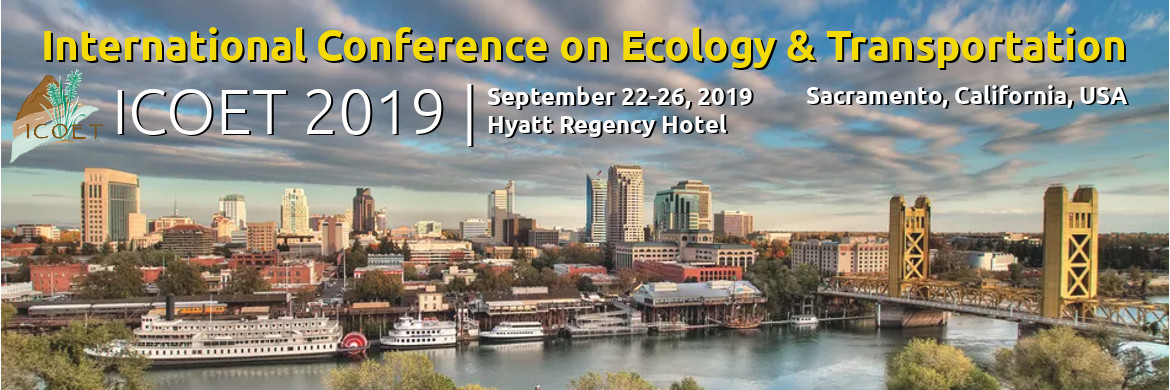Part 1: Advance Mitigation: Successes, Challenges and Lessons Learned from Caltrans Pilot Projects Part 2: Caltrans' Advance Mitigation Program and the Advance Mitigation Planning Process
Panel
-
Chris Jannusch, Caltrans
-
David Johnson, Caltrans
-
Katie Rodriguez, Caltrans
-
Kelly Kawsuniak, Caltrans
-
Jennifer Moonjian, Caltrans
-
Scott Quinnell, Caltrans
-
Stuart Kirkham, Caltrans
-
Carin Loy, Caltrans
Overview
Part 1
The introductory presentation will discuss the program background and overview of the resulting 13 advance mitigation pilot projects stemming from the first advance mitigation-designated funds. Among the goals of the pilot projects is to increase transportation project delivery efficiency and improve the likelihood that compensatory mitigation would be available when needed. We will describe the planning steps used to justify the mitigation needs, internal challenges to delivering a non-transportation project within a transportation project delivery organization and the unique and specific hurdles that required resource agency collaboration and support to obtain the compensatory mitigation and ultimately assign that mitigation to permitted transportation projects.
The lessons learned from this array of challenges may inform not only Caltrans post-pilot advance mitigation projects but also other DOT’s, mitigation providers, permitting agencies outside California and conservation entities.
Part 2
The Advance Mitigation Program was created within the California Department of Transportation (Caltrans) by the Road Repair and Accountability Act of 2017, for the purpose of enhancing communication between the Department and stakeholders, to protect natural resources through transportation project mitigation, and to accelerate transportation project delivery. Funds from the Advance Mitigation Account cannot be expended unless the Director of Transportation makes a determination and justification that the expenditure will accelerate the delivery of specific transportation projects. The Advance Mitigation Program requires a robust planning process that documents the potential mitigation needs of planned transportation projects, to select geographic areas to perform landscape scale mitigation, and to integrate the conservation goals and objectives of a variety of conservation plans in that regions into advance mitigation project concepts.
Panelist Biographies
Chris Jannusch is part of the advance mitigation team at the California Department of Transportation (Caltrans). Prior to Caltrans he worked at a local water district in groundwater hydrology and chemistry, limnology and endangered fisheries management. Chris has participated in ecological research in the San Francisco Bay, Central Valley floodplains, Siskiyou-Cascades, Sierra Nevada, Central Great Basin and coastal Jalisco. He is an alumnus of UC Davis and the University of Nevada, Reno.
David Johnson is a Biology Branch Chief overseeing the Southern San Joaquin Valley Biology Branch in Caltrans’ Districts 6 and 10. Previously, as District 6’s Senior Mitigation Specialist, he served as the point person for advance mitigation and complex biological restoration projects. Prior to Caltrans, he was a biologist in the private sector performing field surveys in Indiana, Ohio, Nevada, and California. He holds a B.S. in biology and environmental science from Central Michigan University.
Katie Rodriguez grew up in the San Francisco Bay Area and is a lover of animals and the outdoors. Katie is the Senior Biologist for Caltrans in the District 9 office in Bishop, CA. Prior to Caltrans, she worked for the National Park Service in Yosemite National Park, CA. Katie works on various wildlife-vehicle collision and corridor projects in the Eastern Sierra. Katie received her B.S. and Master’s degree from San Jose State University in Conservation Biology and Ecology.
Kelly Kawsuniak is a Caltrans Senior Environmental Planner in the Inland Stewardship Branch, Districts 2 and 3. She has over 19 years’ experience as a Mitigation Specialist in District 2. She has developed and implemented more than five Caltrans conservation areas/banks for oak woodland, Valley elderberry longhorn beetle, wetland and riparian habitats. She obtained her B.S. in both Zoology and Environmental Science, with a minor in Botany from Humboldt State University.
Jennifer Moonjian is a Senior Specialist in advance and complex mitigation with Caltrans District 5 in San Luis Obispo. She graduated with an Bachelor’s and Master’s degree in Biological Studies, from Cal Poly, San Luis Obispo. She has 16 years of experience in biological sciences and environmental planning, 10 of those years were spent as a Caltrans project biologist, specializing in San Joaquin kit fox, bats, wildlife connectivity and wetland restoration projects.
Scott Quinnell is a Senior Biologist in Caltrans District 8 in San Bernardino. His professional emphasis is in mitigation solutions for transportation projects.
Stuart Kirkham is a Senior Environmental Planner for Caltran’s Advance Mitigation Program. He is currently involved with assessing the potential mitigation need for future planned transportation projects, the planning of advance mitigation projects and the development of the program, and is the program manager for the advance mitigation projects in the State Highway Operations and Protection Program. He has 11 years of experience within the environmental professional field in California.
Carin Loy is a Senior Environmental Planner for Caltrans’ Advance Mitigation Program. Over the past 30 years, she has worked as an environmental scientist and planner under a number of regulatory paradigms, such as ecological risk assessment and FERC relicensing, all of which have helped prepare her to help integrate the Advance Mitigation Program into Caltrans. Of her assignments associated with Caltrans, one is coordinating the development of Regional Advance Mitigation Needs Assessments (RAMNA), the third step in Caltrans advance mitigation project planning process that precedes the Director of Transportation’s advance mitigation project approval and funding. Carin’s academic degrees are in Chemistry (BS UC Davis) and Ecology (MS University of Tennessee, Knoxville).
